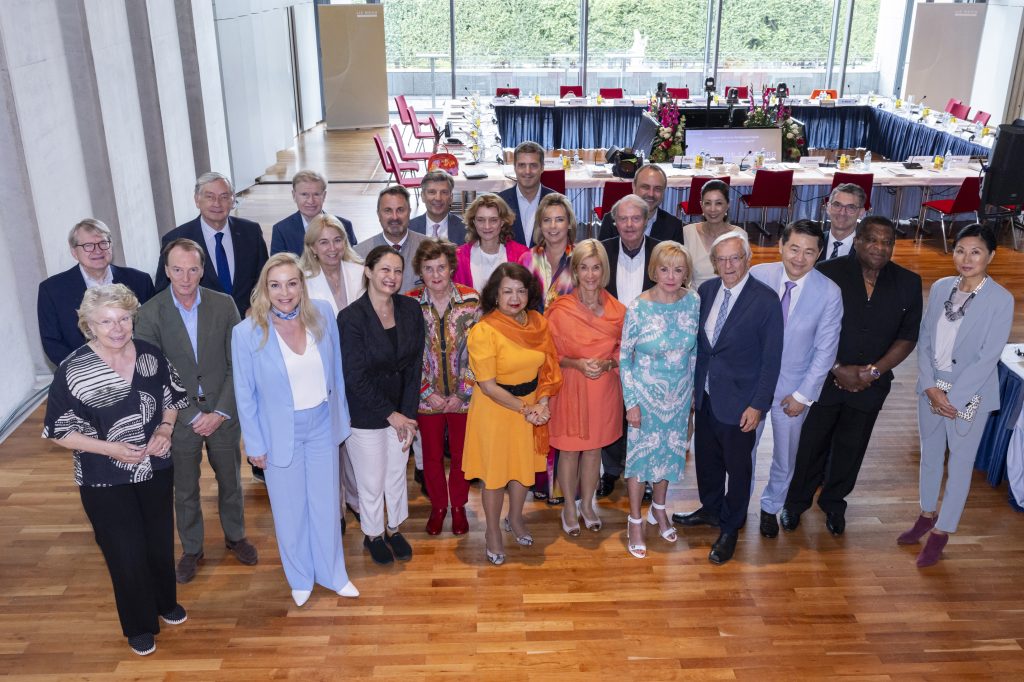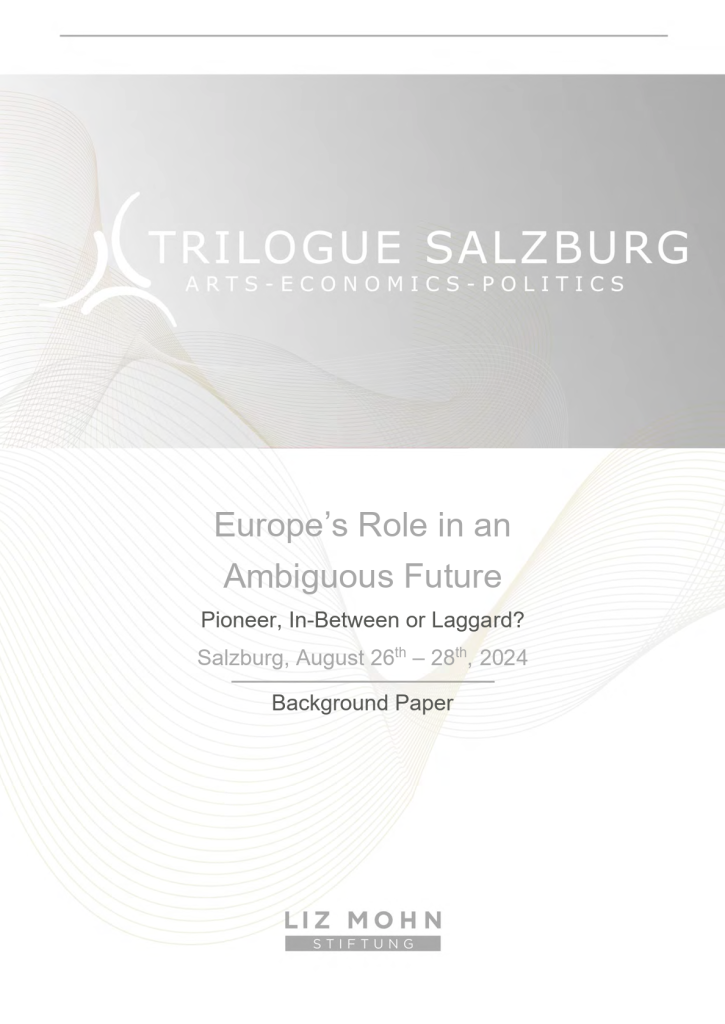Europe has often been a pioneer and an impetus for other regions of the world, especially through its innovative strength, science, education, culture, and not least its economic power. Now the question arises as to whether and how Europe can maintain these advantages.
In the discussions, which took place under Chatham House Rules, the following points were the focus:
Europe in the World
Crisis situations are nothing new for the European Union. For years, it has been in this mode: from the euro crisis to problems in migration policy to the Covid pandemic. Solutions have been found for all these challenges so far. In the current situation, an increase in defense spending is necessary, which is unsettling for many political leaders on the peace-oriented continent of Europe. In addition, Europe suffers from a lack of leadership, so conflict parties are more likely to seek dialogue with Russia, Turkey, or China, but not with the EU.
Europe à la carte – graphically represented by the Schengen Agreement or the euro – has worked well in the past and should therefore be strongly considered as a principle in the further development of the EU. For the European integration of the Balkans and Turkey, we need creative solutions. However, an expansion of the EU should be inextricably linked with a transformation of the institutions.
There is not an analysis problem, but an implementation problem. The European Union must follow through and implement what it promises, or it risks growing incredibility both internally and externally. For this, internationally competitive institutions and personnel as well as a transparent system of rewards and sanctions in the implementation of strategic projects are needed. Only then can the EU become a geopolitical actor instead of a subject of geopolitics.
The tectonic plates of the world order are shifting, and the West, especially Europe, is experiencing a relative decline as other countries in Asia, Africa, and Latin America develop more dynamically. The West can no longer determine international rules alone. Instead, it must actively participate in the necessary change processes, or risk being overtaken by other actors.
The current global situation is characterized by significant upheavals and uncertainties. An updated world order is needed that reflects these developments. The EU has enormous soft power, and there is a long, conflict-free history between China and the EU.
In the past, Western imperialism was characterized by a unilateral order and leadership principle. The West must learn to develop a more balanced leadership style for the reordering of the world.
Although the reordering of the world requires a reform of international organizations, it does not necessarily require a reform of international law. A reinterpretation is sufficient here. In particular, the principle of non-interference in internal affairs needs adjustment. Existing organizations do not reflect today’s realities – this applies both to international power relations and to the political systematic underrepresentation of youth, both nationally and internationally.
Europe has greater difficulties than other world regions in dealing with the ambiguities resulting from global changes. Emerging countries take greater risks and achieve higher gains as a result. The gap between Europe and the emerging and leading nations and regions is not insurmountable. With effort and adaptation, we can catch up again.
Peace and Security
Europe must evolve from a mere peace project to an actor that actively ensures security. For this, a functioning economy is indispensable, and even with economic growth, there will be difficult decisions about how to allocate financial resources.
The EU, originally a peace project, was awakened by Russia’s attack on Ukraine. Without economic success, Europe will not be able to play a significant international role.
In recent decades, Europe has benefited from peace, international value chains, and common values, but this time is now over. Europe must therefore better guard against geopolitical risks, terrorism, and attacks on its critical infrastructure, and better manage migration. A joint project to protect critical digital infrastructures would be particularly suitable for this.
After the war in Ukraine, Europe will need a new security architecture that should already be worked on. More effective consultation mechanisms will be particularly necessary, as security should be understood more comprehensively, not just in a military sense.
Economic Development
Artificial intelligence is developed in the USA, while Europe focuses on regulations. As a result, Europe risks falling further behind in the digital field. To successfully shape its self-proclaimed digital decade (2021-2030), it must primarily promote the digital skills of all population groups.
Education is Europe’s most important resource, and there are many good approaches that could be implemented within Europe. However, this often fails due to a lack of responsibilities.
Currently, a mixed picture is emerging in Europe: economic dynamism is mainly found in small countries and in Eastern Europe. The duet between Germany and France, which has significantly shaped the development of the EU over the past 50 years, no longer functions in the same way today. The EU needs a new governance structure that better responds to current developments.
It is essential that Europe retains more European talents on its own continent. Although there are many startups, they often lack growth opportunities because investment capital is scarce. For this reason, Europe also needs the Capital Markets Union and a unified European debt instrument.
Future topics such as quantum computers and space are areas in which the EU must become active. Research and development will increasingly be shaped by artificial intelligence and military use.
A major problem currently is that businesses and governments do not communicate and listen to each other effectively. As a result, regulations often do not fulfill their purpose and cause unnecessary costs. It is important that regulators understand which cost structures and business models their requirements impact.
Culture as a European Strength
Europe’s cultural diversity, from its languages, cuisine to its art forms, is a great strength and a significant driver for innovation. This diversity also helps to attract and retain young talents in the long term. Europe remains one of the most livable regions in the world, primarily because of its rich culture. At the same time, it is important to promote a common European identity and a strong sense of belonging to Europe.
Cultural creators can significantly contribute to telling a positive European story and strengthening people’s emotional connection to Europe. Support for art and culture should therefore be seen as an investment in change, as cultural creators shape societal perception and can initiate changes.
Especially in conveying these values and identities, leadership and honesty are required. Public sentiment towards Europe has changed significantly in recent years. Therefore, Europe must agree on common core values and goals for the future.



